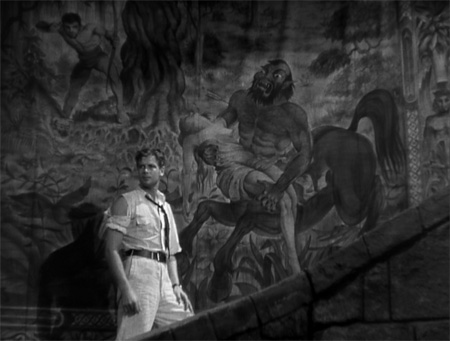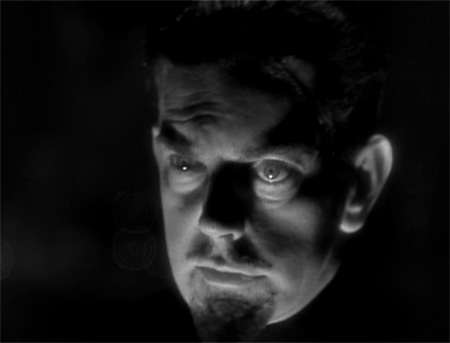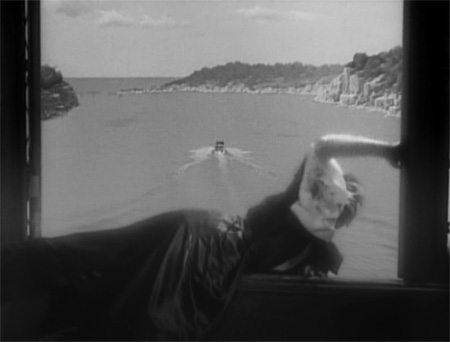A part of this viewing list: Criterion Collection Spine #46: Irving Pichel, and Ernest B. Schoedsack’s The Most Dangerous Game.

As soon as this film kicked in, I realized that it was an adaptation of Richard Connell’s short story that I’d read years ago, loved and lost. So, I was excited to see how it would play out. The adaptation is fairly faithful, with the seemingly always necessary addition of a love interest [Hurrah Fay Wray!] to make it a bit more mass-appealing. The only downsides to this additive are the super-annoying brother and the overuse of poorly done soft focus anytime the camera got near Ms. Wray. Clocking in at 62 minutes, the film is also a bit on the short side. After two British by British adaptations Lean on Dickens in Great Expectations and Oliver Twist, the brashness and lack of subtlety in this American production is quite a change. In the first 8 minutes there are at least half a dozen intimations of doom and some immediate cosmic irony; a shipwreck, explosion and a couple of shark attacks. It is almost hilarious in its blatancy.

But, this is a horror movie, from Hollywood’s Golden Age so we’re supposed to be scared. The protagonist is a famous big game hunter and author so we know he’s capable of surviving a shipwreck on a small island in the South Pacific. Dude ends up at the fortress of a lunatic Kossack and his crazy cohorts, discovers a herd of Great Danes that look like they were recycled [in costume] 27 years later in The Killer Shrews and a drunk New Yorker that you want to be murdered about 2 minutes after his introduction. It is apparent right from the getgo that all the non-shipwrecked folks are bloodthirsty degenerates, but Our Hero is so wooden and bad acting that he doesn’t buy anything until he sees the shriveled heads in the trophy room. This discovery, and the welcome murder of Annoying Drunk American Guy, get dude booted out with a hunting knife and Fay Wray to take care of in the harsh jungle. Fay Wray’s presence is a bonus, because her dress gets skimpier and more falling-offier in every scene.

Dude wins and Kossack guy dies, of course. Fay Wray and hunter dude boat off into the sunset. What is startling and ahead of its time for the film, is due mainly to the story. It is a fairly effective argument against big game hunting and animal cruelty. By placing a human in that same situation, Our Hero realizes that being hunted is not the same as being the hunter. This ends up making his final fight with Count Kossack more interesting than usual because he has a light in his eye like a wild animal might have. So while his acting was pretty terrible throughout, he mitigates that to some extent at the end. If you can’t tell, I wasn’t too impressed with the film. The print Criterion got its hands on wasn’t that good, and the flaws in the filmmaking are consistent enough that it is obvious that either Pichel or Schoedsack didn’t really have a handle on movie-making. It would have been a great film without those hiccoughs [and 20 minutes more plot to cud on].
